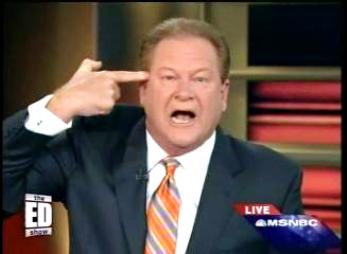To borrow an expression from Glenn Beck, Ed Schultz has “a big, fat mouth.”
The left-wing talker suspended himself from his own MSNBC show after calling conservative talk show host Laura Ingraham a “right-wing slut” on his radio program.

On the Wednesday night edition of his MSNBC show, Schultz began with an apology to Ingraham, MSNBC, his own family and viewers for his comments. “What I said was terribly vile.”
“Remarks of this nature are unacceptable and will not be tolerated,” MSNBC said in a statement.
In his apology Schultz added, “The only way I can prove my sincerity in all of this is if I never use those words again. You have my word I won’t.”
That’s an important statement, because while acknowledging mistakes, an essential aspect of accountability is to be mindful in the future. Without that awareness, individuals can and usually do make similar mistakes which negates the sincerity of the apology.
While I agree with Schultz that his remarks were “the lowest of the low,” and give a nod to his voluntarily stepping down from his show as suitable punishment, had I been the head of MSNBC, I would have asked him to take the additional step of using this as a moment to begin a serious discussion about the role of responsibility in political talk radio and TV.
In a March 2010 commentary discussing rights and responsibilities, I wrote, “The level to which anger-driven passion has risen in recent days has become yet another example of individuals who feel that their right to challenge any issue allows them to act in ways that are appallingly irresponsible.”
In my new book, Shameless, I wrote about the need to “create a safe environment where we can disagree but in an atmosphere of rational debate,” and suggested “…a nationally televised town hall meeting with a panel consisting of political media… [both left and right] as well as journalists facing an audience of citizens prepared with questions regarding issues of responsibility and respect in political discourse. That meeting can also include listening to each one put forth his or her own solutions to reduce the anger and hate in national speech.”
While forgiveness is an important aspect of fairness, sincere words are meaningless unless backed by sincere actions. I would like to see Ed Schultz approach MSNBC management and his viewers in an open conversation about how his apology will demonstrate itself in the future.
That act would be a step toward real responsibility, and perhaps the beginning of a change in the kind of reckless partisan rhetoric that has been prevalent for too long.
Comments









